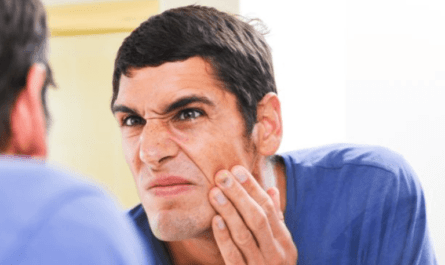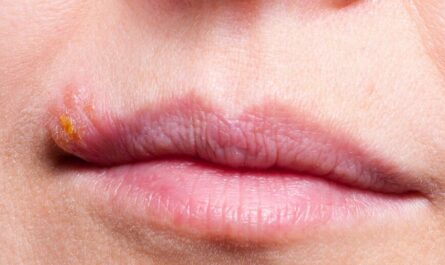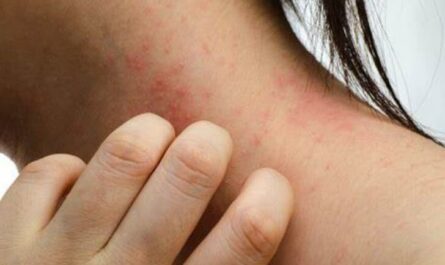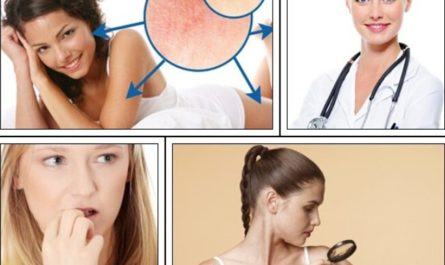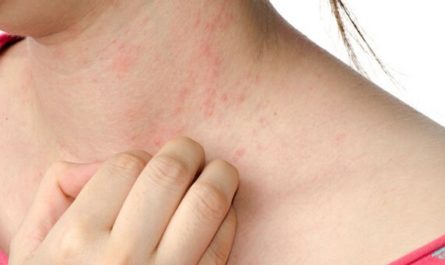Pimples under the skin can be an annoying and uncomfortable problem. Not only are they unsightly, but they can also cause inflammation and pain. Fortunately, there are a few steps you can take to help treat and prevent them.
From over-the-counter treatments to home remedies, there are various options to try. If you’re looking for relief from those pesky pimples under the skin, read on to learn more about the causes, treatments, and prevention of cystic acne.
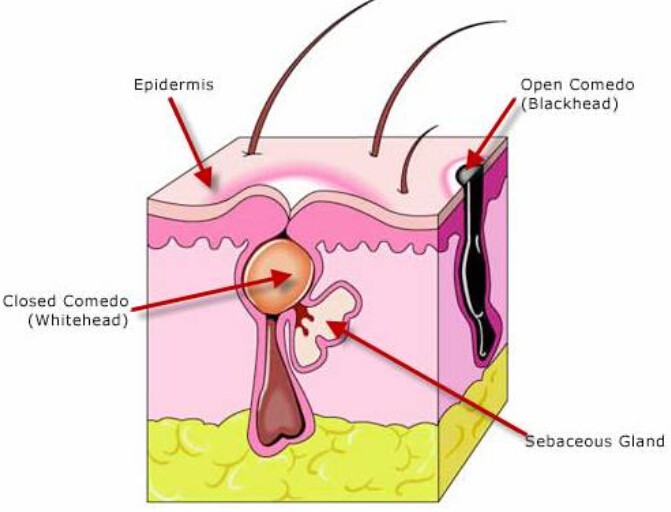
What is a pimple under the skin?
A pimple under the skin, also known as cystic acne, is a type of acne that occurs when a hair follicle becomes clogged with oil, dead skin cells, and bacteria.
Unlike a typical pimple, which forms on the surface of the skin and may come to a head, a pimple under the skin is a large, painful bump that is red, swollen, and filled with pus. It may not have a visible opening and can last for weeks or months.
Cystic acne can occur on the face, chest, back, and other body areas. Hormonal changes, genetics, poor diet, stress, certain medications, skincare products, and environmental factors can all contribute to the development of cystic acne.
What causes Pimple Under the Skin?
A pimple under the skin, also known as cystic acne, can be caused by a variety of factors, including:
- Hormonal changes: Hormonal fluctuations, especially during puberty or menstruation, can cause the overproduction of oil in the skin’s glands, leading to clogged pores and acne.
- Genetics: If your parents or siblings have a history of cystic acne, you may also be more prone to developing it.
- Poor diet: Consuming a diet high in processed foods, sugar, and dairy products can increase inflammation and lead to acne.
- Stress: High-stress levels can trigger the production of hormones that increase oil production and lead to acne.
- Certain medications: Some medications, such as corticosteroids and lithium, can cause acne as a side effect.
- Skincare products: Using pore-clogging skincare products or not properly cleansing your skin can lead to acne.
- Environmental factors: Exposure to pollution, humidity, and sweat can also contribute to acne.
Identifying the underlying cause of your cystic acne is essential to treat it effectively. Consult with a dermatologist if you’re experiencing persistent or severe acne.
How To Get Rid of Pimple Under Skin Naturally
If you want to get rid of pimples under your skin, you must keep yourself clean.
Toothpaste
Do you find it weird that you have to use toothpaste to get rid of your pimples? Toothpaste may have some factors that will eventually cause pimples to disappear.
Of course, this treatment is not for everyone. Some have reported that their skin has become problematic because of using toothpaste. If you have sensitive skin, you may try out other remedies instead.
- Choose white toothpaste, as this may be the most effective for pimples under the skin.
- Place the white toothpaste on the pimple.
- Leave the white toothpaste on the pimple overnight.
- Wash it off when you wake up in the morning.
Lemon Juice
Lemon has always been known to be good for the skin. Some products contain lemons because of citric acid, which can be good for the skin. Lemon juice can also be a good cleanser for the skin. At the same time, lemon juice can help heal pimples under the skin.
- Make sure that you will get the juice from one whole lemon.
- Dip a cotton ball and place it on the affected area.
- You must place the cotton ball on the pimple first and leave it for a few minutes.
- You would need to do this for a specified period until you get desired results.
Honey
Have you ever wondered why there are a lot of honey-based skin products? It is not because honey is sweet. Instead, it is because honey is a natural antiseptic, which means it can help eliminate certain types of bacteria. At the same time, it will help a pimple under the skin heal faster, so there will be minimal scarring.
- Remember to use organic honey, as this can be more effective in removing your pimples.
- Apply honey to the affected area and leave it for 20 minutes.
- Wash with lukewarm water.
- This would have to be done twice a day to see visible results.
Milk
It is already known that milk can be good for the skin, but do you know that you can use them to get rid of pimples? Since they contain Alpha Hydroxy Acids, you can be sure to remove dead skin and heal a pimple under the skin simultaneously.
- You must use a cotton ball to place the pimple under the skin.
- Leave the cotton ball on the affected skin area for about 20 minutes.
- Make sure to wash the affected skin area with warm water afterward.
- This can be done three times a day.
Warm Compress
What do you think should be your primary goal when you have bumps under the skin? You should aim to make the pimples under the skin come out so you can remove them. If you are unsure how to do that, use a warm compress. Once the liquid comes out, the pimple will begin to heal.
- Soak a cloth in hot water.
- Ensure you place the cloth on your pimple for a few minutes.
- Do this several times a day until the head of a pimple comes out because of the heat.
- You may have to do this for a few consecutive days.
Epsom Salt
If you are searching for a possible home remedy that you can find immediately at home, you know that Epsom salt can benefit a pimple under your skin. Epsom salt helps make a spot less inflamed than usual so that it will not be too painful anymore.
- First, you would need to dissolve the Epsom salt in a full glass of water.
- Apply the mixture to the pimple using gauze or a cotton ball. You may also use a clean cloth.
- Make sure that it will dry without you having to dry pat it.
- Wash off with water once it dries up.
- Do this several times a day until you see a pimple start to heal.
Apple Cider Vinegar
You do not think this list will be complete without Apple Cider Vinegar, do you? You have to know that this is still a helpful remedy that you can use to get rid of a pimple under the skin. The antiseptic properties of Apple Cider Vinegar can be highly useful in making pimples heal. Outbreaks can also be avoided because of this.
- You need to dip a cotton ball in apple cider vinegar. If you have sensitive skin, you may choose to dilute apple cider vinegar with water first.
- Place the cotton ball on the affected skin area and leave it on for a few minutes.
- Remember not to go beyond 5 minutes as this may burn your skin.
- Do this every day until a pimple starts to come out on its own.
Medical treatment for Pimple Under Skin?
Medical treatment for pimples under the skin, or cystic acne, may involve a combination of topical and oral medications. Here are some options:
1. Topical retinoids:
These medications, such as tretinoin, adapalene, and tazarotene, help unclog pores and reduce inflammation. They are available by prescription and can effectively treat mild to moderate acne. (source: American Academy of Dermatology – https://www.aad.org/public/diseases/acne-and-rosacea/cystic-acne)
2. Topical antibiotics:
Antibiotics such as clindamycin and erythromycin can help reduce bacteria on the skin and decrease inflammation. They are often used in combination with other acne medications. (source: Mayo Clinic – https://www.mayoclinic.org/diseases-conditions/acne/diagnosis-treatment/drc-20368048)
3. Oral antibiotics:
For more severe cases of cystic acne, oral antibiotics such as doxycycline, minocycline, and tetracycline can help reduce inflammation and kill bacteria.
These medications should be used under the guidance of a healthcare provider, as they can have side effects and may contribute to antibiotic resistance. (source: American Academy of Dermatology – https://www.aad.org/public/diseases/acne-and-rosacea/cystic-acne)
4. Isotretinoin:
This medication, also known as Accutane, is a potent oral medication that can effectively treat severe cystic acne. It works by reducing the amount of oil the skin produces and shrinking the sebaceous glands.
Isotretinoin can have serious side effects and should only be used under close medical supervision. (source: Mayo Clinic – https://www.mayoclinic.org/diseases-conditions/acne/in-depth/acne-treatments/art-20045892)
How to Prevent Pimples Under Skin?
Preventing pimples under the skin, or cystic acne, can be challenging, but here are some tips that can help:
- Keep your skin clean: Wash your face twice a day with a gentle cleanser to remove dirt, oil, and sweat from your skin. Avoid harsh scrubs or over-washing, which can irritate your skin and worsen acne.
- Don’t touch your face: Touching your face can transfer bacteria and oil to your skin, causing pimples. Avoid picking at or squeezing existing pimples, which can cause further inflammation and scarring.
- Use non-comedogenic products: Use skincare and makeup products labeled non-comedogenic, which means they won’t clog your pores.
- Manage stress: Stress can trigger hormonal changes that can lead to acne. Find ways to manage your stress, such as through exercise, meditation, or therapy.
- Eat a healthy diet: A diet high in fruits, vegetables, lean protein, and whole grains can help reduce inflammation and prevent acne.
- Avoid tight clothing: Tight clothing can trap sweat and oil against your skin, leading to acne. Wear loose-fitting, breathable clothing, especially during exercise.
- See a dermatologist: If you have persistent or severe acne, a dermatologist can recommend prescription-strength treatments or procedures, such as topical or oral medications, chemical peels, or laser therapy.
Keep in mind that preventing pimples under the skin may take time and patience, but with consistent effort, you can improve the overall health of your skin and reduce your risk of acne.
1. How long does it take for pimples under the skin to go away?
Pimples under the skin can take several weeks or months to heal, depending on the severity of the acne and the effectiveness of the treatment. Consistent use of prescribed medications and adherence to a healthy skincare routine can help speed up the healing process.
2. When should I see a healthcare provider for a pimple under the skin?
If you have persistent or severe cystic acne that is causing discomfort, scarring, or emotional distress, it’s important to see a healthcare provider for evaluation and treatment. They can recommend appropriate medications and procedures to help manage your acne.

